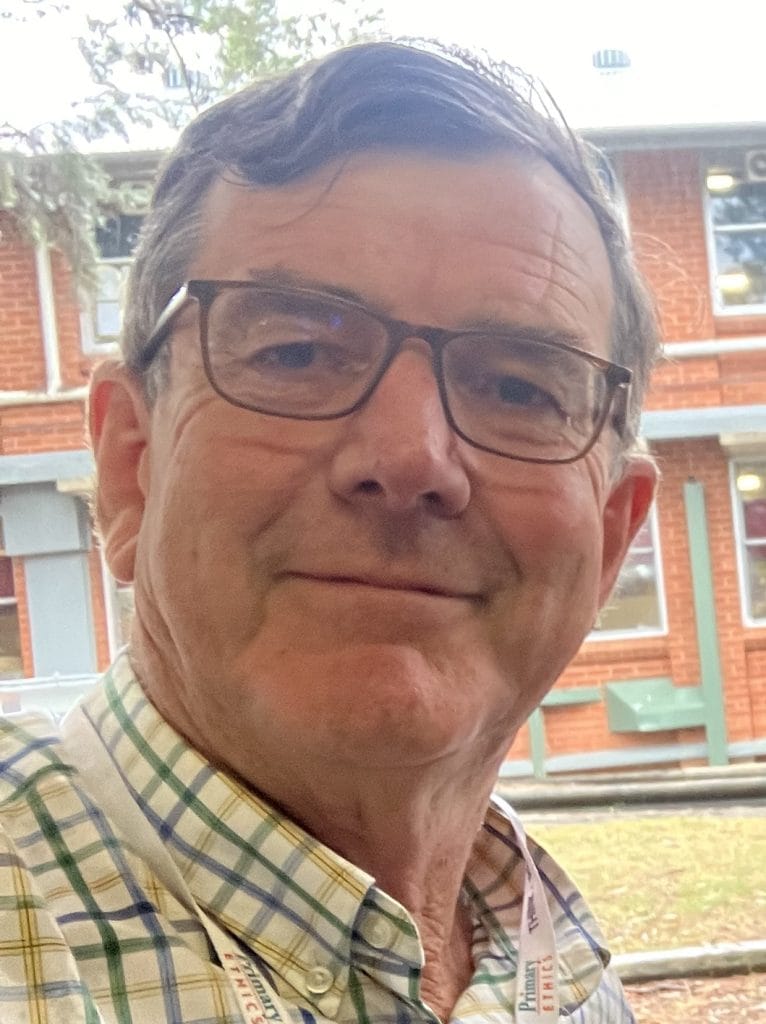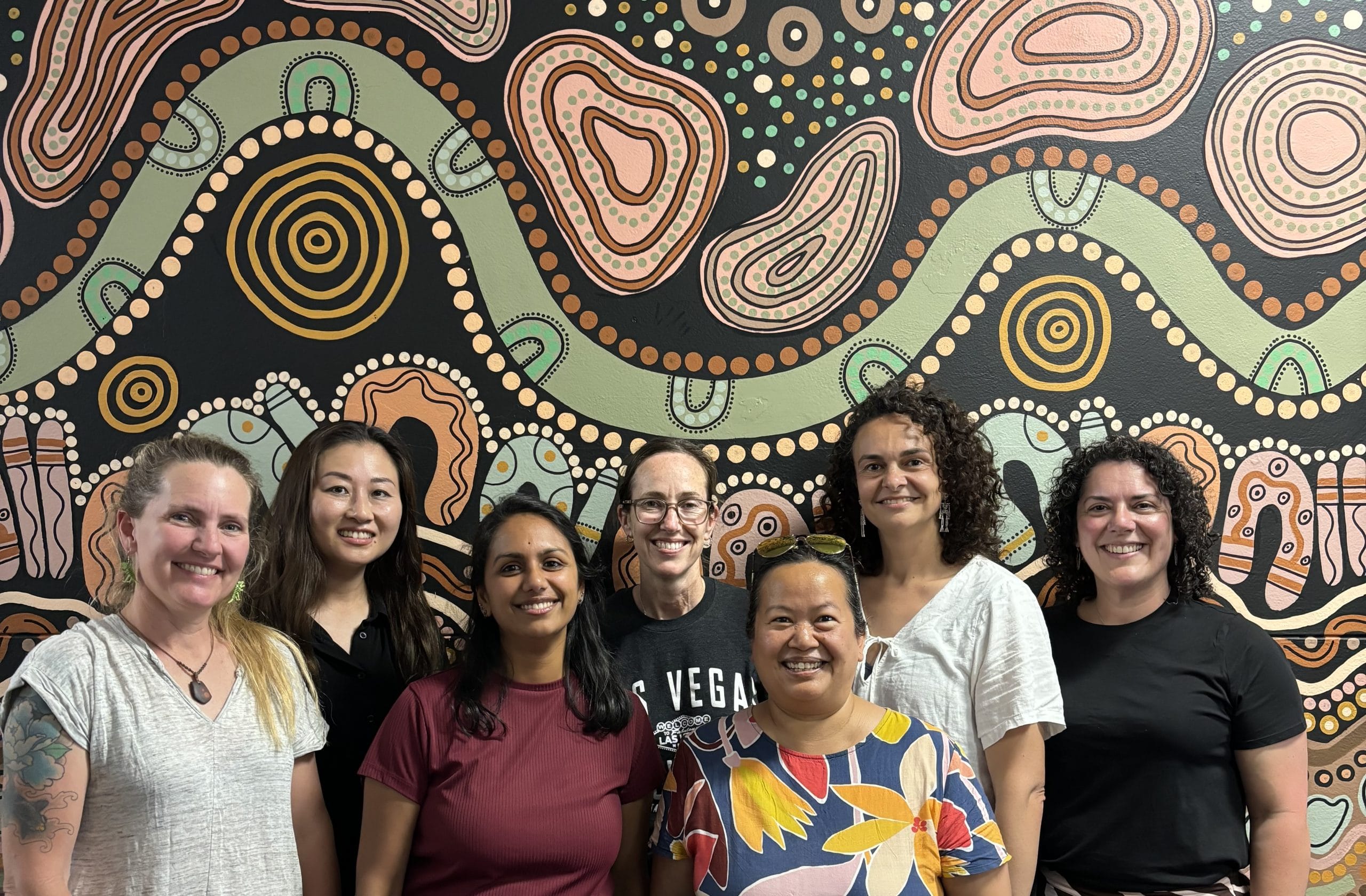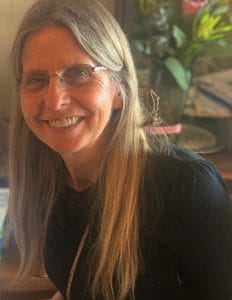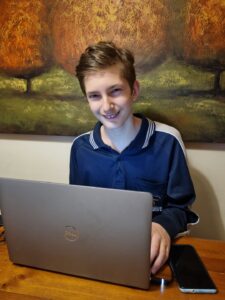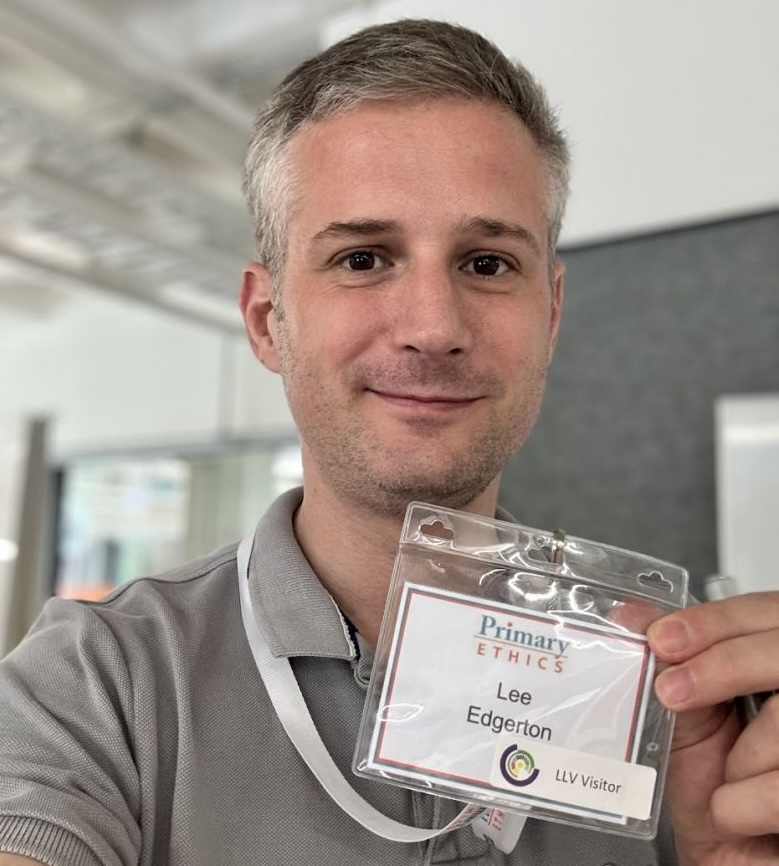Stories from National Student Volunteer Week
It’s National Student Volunteer Week, a great opportunity to showcase stories from our many student ethics volunteers.
Volunteering does look good on your resume, which is especially valuable for people starting out on their career, but ethics volunteering offers so much more than that. Top of the list from many of our students is what they learn themselves, which can be productively applied in their future work lives – knowing how to maintain neutrality, listen carefully, develop empathy and learn that it’s okay to change their mind about something, just as the school students learn to.
Reports from student ethics volunteers
Khanh is a student of Nursing at Sydney University.
“I grew up in a culture where young children weren’t encouraged to speak up. With Primary Ethics, I get to help children feel heard and think for themselves – something I wish I’d had growing up.
Volunteering in ethics hasn’t just been meaningful, it’s helped me become more curious, thoughtful and connected to people. I ask ‘why’ a lot more now (maybe to an annoying degree!), but it helps me understand the people around me better, even those I already know well.
I am thrilled to be a part of Primary Ethics and would love to have more student volunteers as my colleagues. I truly appreciate what ethics brings to the community and to me personally. Being able to volunteer here feels like a once-in-a-lifetime experience.
Primary Ethics really helps me grow just as much as my students do.”
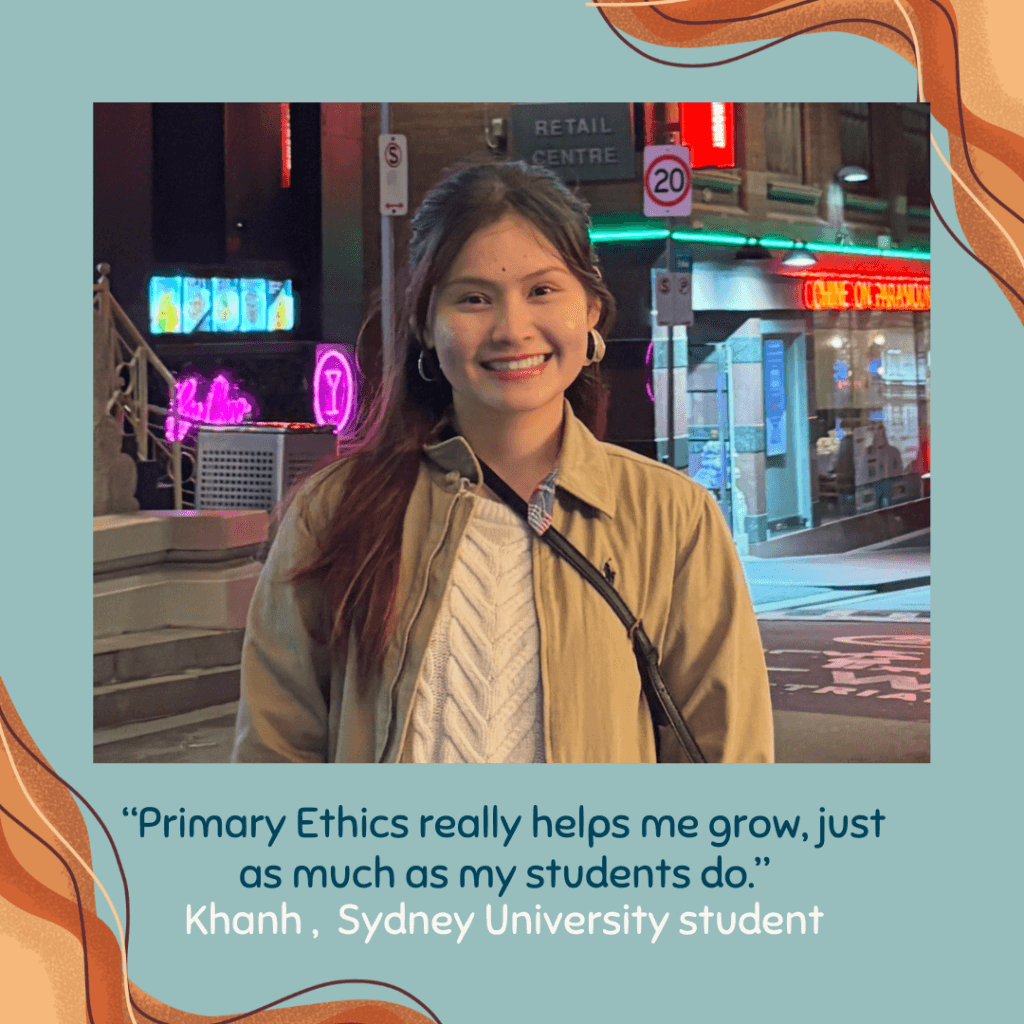
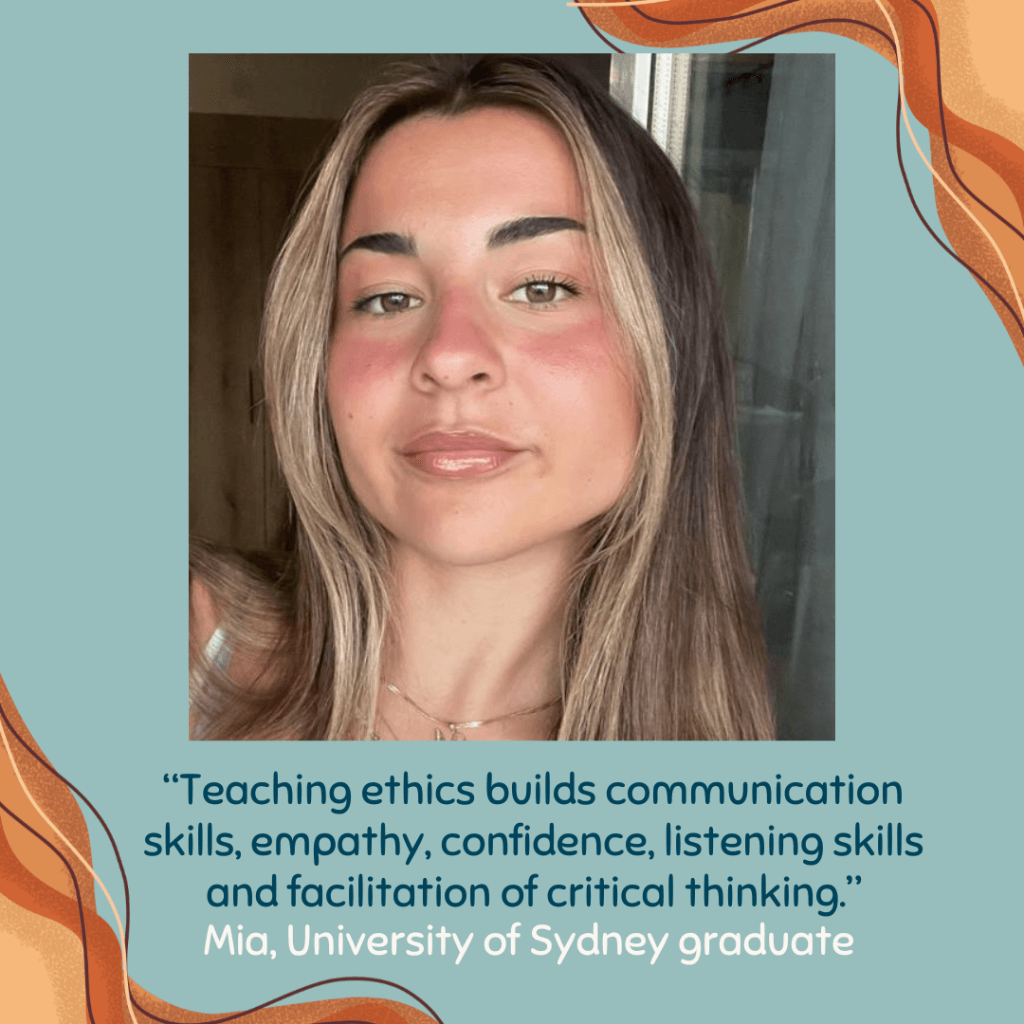
Mia is a recent graduate in the Bachelor of Medical Science from the University of Sydney.
“I started volunteering in ethics when I was 18, during the first year of my degree. I decided to begin my ethics journey to develop my critical thinking, reasoning, problem solving and communication skills, all of which are incredibly important in the medical field. My mother was (and still is) an ethics volunteer and together we became the first mother-daughter ethics teaching duo for Primary Ethics!
Volunteering for Primary Ethics is incredibly enriching for tertiary students. There is a common belief that ethics volunteering is especially good for students in education, psychology, health or social sciences, but I believe that teaching ethics builds communication skills, empathy, confidence, listening skills and facilitation of critical thinking no matter what your field of study or interest is.For students out there considering becoming an ethics teacher, seeking meaningful volunteering experience or even wishing to develop their interpersonal skills, I would highly recommend pursuing a volunteering role at Primary Ethics!”
Bharathi is studying Philosophy and Sociology at the University of Wollongong.
“At a time when young people are feeling powerless, helping children to think critically and have respectful discussions makes me feel empowered – that I can help create a world where young people feel better able to speak and be listened to on issues that impact them. If you’re a student and would like to be a part of that too, I’d highly recommend volunteering with Primary Ethics.”
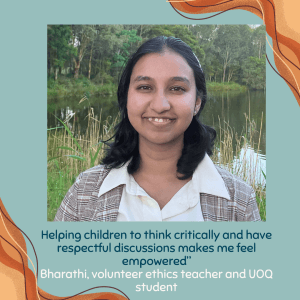
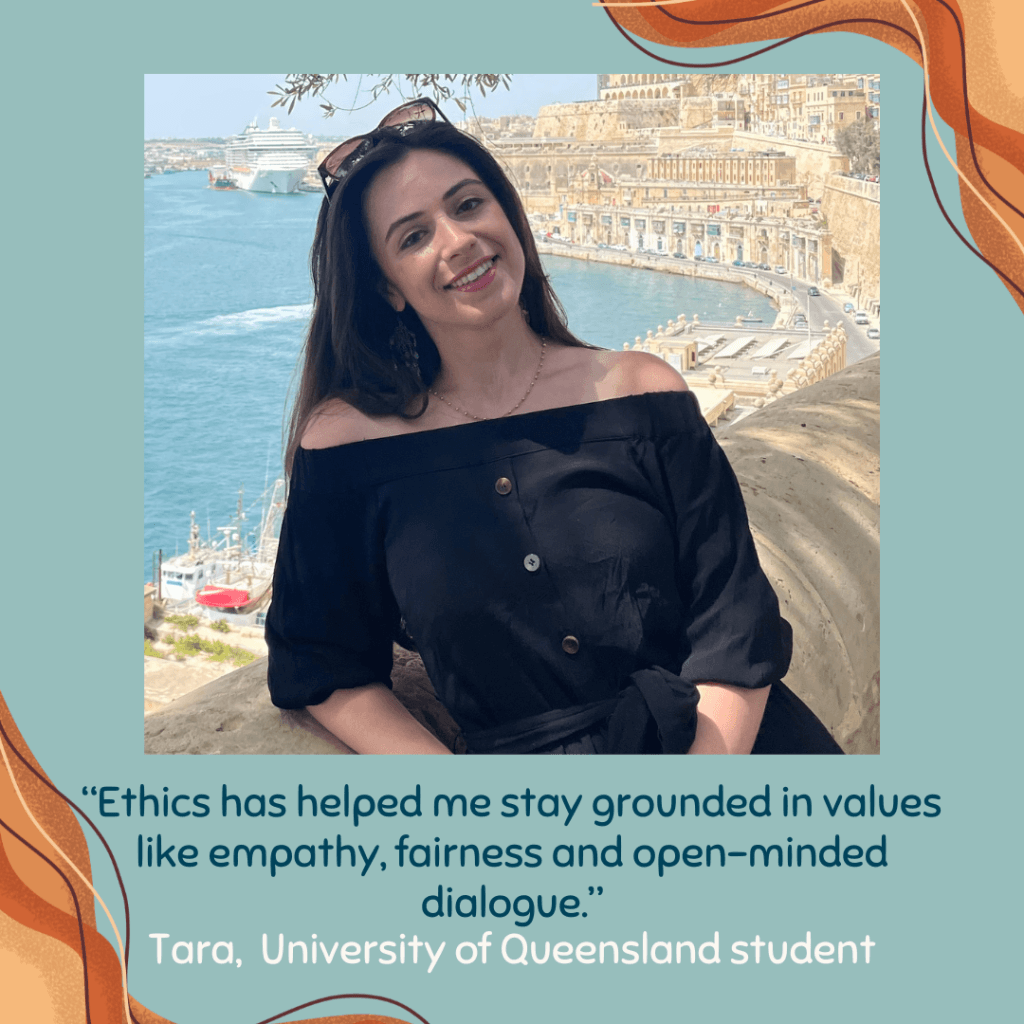
Tara is currently pursuing a Masters in Medicine at the University of Queensland.
“Volunteering with Primary Ethics has shaped how I communicate—with patients, colleagues, and children alike. It’s taught me to listen without rushing to judgment and to approach each conversation with curiosity and care.
I’m currently completing a Master of Medicine in Skin Cancer through the University of Queensland and working as a Dermatology Research Fellow at The Skin Hospital. Amidst the science and clinical work, ethics has helped me stay grounded in values like empathy, fairness, and open-minded dialogue. Being a Primary Ethics coordinator is one of the most rewarding things I do—it reminds me that respectful listening is a skill we can all keep building. I’d absolutely encourage other students to get involved. You don’t need to be an expert—just willing to ask questions and think deeply.”


